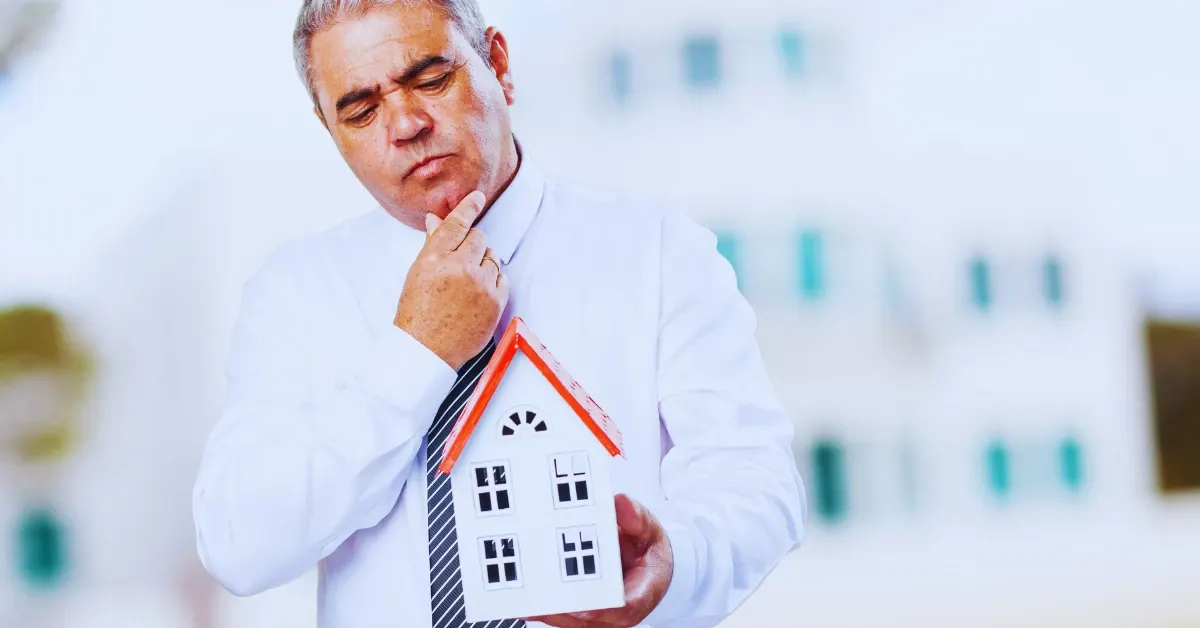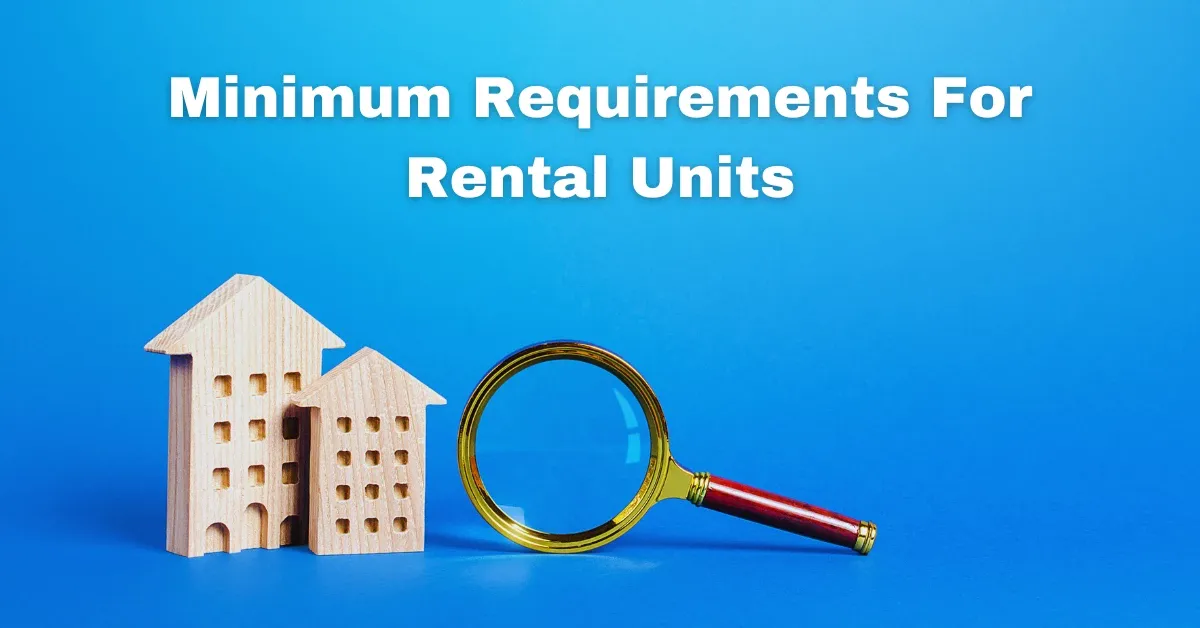Essential Services: What Does a Landlord Have to Provide?
A landlord must provide a safe and habitable living space for tenants, including basic amenities such as functioning plumbing, heating, and electricity. Landlords are also responsible for ensuring that the property meets local health and safety codes, and must promptly address any necessary repairs or maintenance.
It’s important to promptly address any necessary repairs or maintenance to ensure your tenants’ well-being and satisfaction.
Failing to provide these basic amenities and making necessary repairs can result in legal action and possible financial penalties.

Understanding A Landlord’S Responsibilities
Being a landlord comes with a lot of responsibilities, including making sure that tenants have a safe, healthy, and comfortable living environment.
Understanding a landlord’s responsibilities is essential for both landlords and tenants. Let’s discuss some of the primary responsibilities of landlords.
The Implied Warranty Of Habitability
The implied warranty of habitability is one of the most critical responsibilities of landlords.
This means that landlords are responsible for providing tenants with a rental property that meets basic living standards. Here are some requirements landlords must meet:
- The property must have adequate heating, ventilation, and air conditioning.
- There must be safe electrical, plumbing, and gas systems.
- The property must be pest-free.
- The property must have functioning smoke detectors and carbon monoxide detectors.
Disclosure Requirements
Landlords must also be transparent with their tenants when renting out a property. Here are some vital disclosure requirements landlords should adhere to:
- Landlords must disclose any known lead-based paint hazards in the property if the property was built before 1978.
- Landlords must also inform tenants of any known mould or other hazardous materials on the property.
- Landlords must provide tenants with a move-in inspection form to document the condition of the property at the start of the lease.
Compliance With State And Local Laws
Landlords must comply with state and local laws. Here are some of the essential laws landlords must follow:
- Landlords must provide tenants with proper notice before entering the property.
- Landlords must provide tenants with a habitable rental property.
- Landlords must comply with rent control ordinances in their area.
Minimum Requirements For Rental Units

Basic Amenities A Landlord Is Required To Provide
When renting out a property, landlords are required to provide a minimum standard of living for their tenants.
Here are some of the basic amenities that a landlord is required to provide:
Heating and ventilation
Tenants have the right to a comfortable living space with adequate heating, ventilation, and natural light.
Running water
The landlord must provide access to hot and cold running water and must ensure that tenants have access to a bathroom and toilet.
Electricity and gas supply
The landlord must ensure that the electrical wiring and gas supply are safe and in good working condition.
Fire safety
Landlords are required to install smoke alarms on each floor of the property and provide carbon monoxide alarms in rooms with a gas appliance.
Safety Features To Ensure Tenant Well-Being
The well-being of tenants should be a priority for landlords. Therefore, they should ensure the following safety features in their rental units:
Window safety
To ensure the safety of children and prevent accidents, landlords must install locks or safety catches on windows of a certain height.
Security
The landlord must provide secure locks on doors and windows to ensure the safety of tenants and their belongings.
Pest control
The property should be free from pests and infestations that can create health hazards for the tenants.
The building’s structure
The landlord must ensure that the building’s structure is sound and does not present any hazards to the tenants.
Maintenance And Repair Obligations
Landlords must fulfil certain maintenance and repair obligations to provide a safe and habitable living space for their tenants:
Structural repairs
It is the landlord’s responsibility to maintain the property’s structure, walls, roof, and foundations, and repairs should be made promptly.
Plumbing and electrical repairs
Landlords are required to repair any defects in plumbing, heating, or electrical systems.
General maintenance
It’s the landlord’s responsibility to maintain the condition of the rental unit, including doors, windows, carpets, gardens, and any other areas.
Health and safety inspections
The landlord is responsible for ensuring all health and safety checks are carried out, such as gas and electric safety inspections.
Tenant Rights And Managing Expectations

Understanding The Contract Between A Landlord And Tenant
As a tenant, before renting a unit, it is important to understand the rental agreement and go through the lease contract carefully.
It helps avoid conflicts and sets clear expectations from the start. Here are some key points to consider:
- The lease contract should include details regarding the rent, security deposit, duration of the lease, and terms of renewal.
- The contract should also cover the grounds for terminating the lease and the notice period required from both parties.
- As a tenant, you have the right to a livable and safe unit. In case of maintenance issues or repairs, the landlord should be informed and given sufficient time to fix the issue.
The Responsibility Of The Tenant To Maintain The Unit
While the landlord is responsible for maintaining the unit to ensure its livability, tenants share that responsibility.
It is crucial to take responsibility and maintain a clean living area for yourself and others. Here are some points to keep in mind:
- Tenants are responsible for keeping the unit clean, which includes regular cleaning and keeping the space sanitary.
- Minor repairs and replacements such as replacing light bulbs or air filters are the tenant’s responsibility.
- Do not engage in any activities that could cause harm to the property.
Conflict Resolution And Seeking Legal Recourse
Despite the best efforts of both parties, conflicts may arise between tenants and landlords.
It is important to try to resolve the issue amicably before taking legal action. Here are some key points to remember:
- A tenant should inform their landlord of any issues or violations of their lease terms.
- If the issue is not resolved by communication, it’s advisable to send a written notice.
- Seeking legal advice is a viable option if the issue escalates or becomes a safety concern.
- Before taking any legal action, it’s essential to understand the local/state laws governing tenant-landlord relations.
Frequently Asked Questions For What Does A Landlord Have To Provide
What Are The Landlord’S Responsibilities For Safety In The Rental Property?
Landlords must provide a safe rental property, including proper locks, smoke detectors, and fire extinguishers.
What Utilities And Amenities Should A Rental Property Include?
Basic utilities such as water and heat must be provided, and some landlords may include extras like internet or cable.
Can A Landlord Enter A Rental Property Without Permission?
No, a landlord must give notice and receive permission before entering a rental property, except in the case of an emergency.
What Are The Landlord’S Obligations For Repairs And Maintenance?
Landlords must promptly take care of repairs and maintenance that affect tenants’ health and safety, as well as any structural issues.
Conclusion
Diving into the realm of property ownership, you now know that a landlord’s responsibilities extend beyond collecting rent.
They must provide habitable premises with essential amenities, enforce fair housing practices, and respect your privacy.
Every day, you’re navigating these rules like a pro, making tenancy a smooth sailing experience.
Reference
https://www.usa.gov/tenant-rights